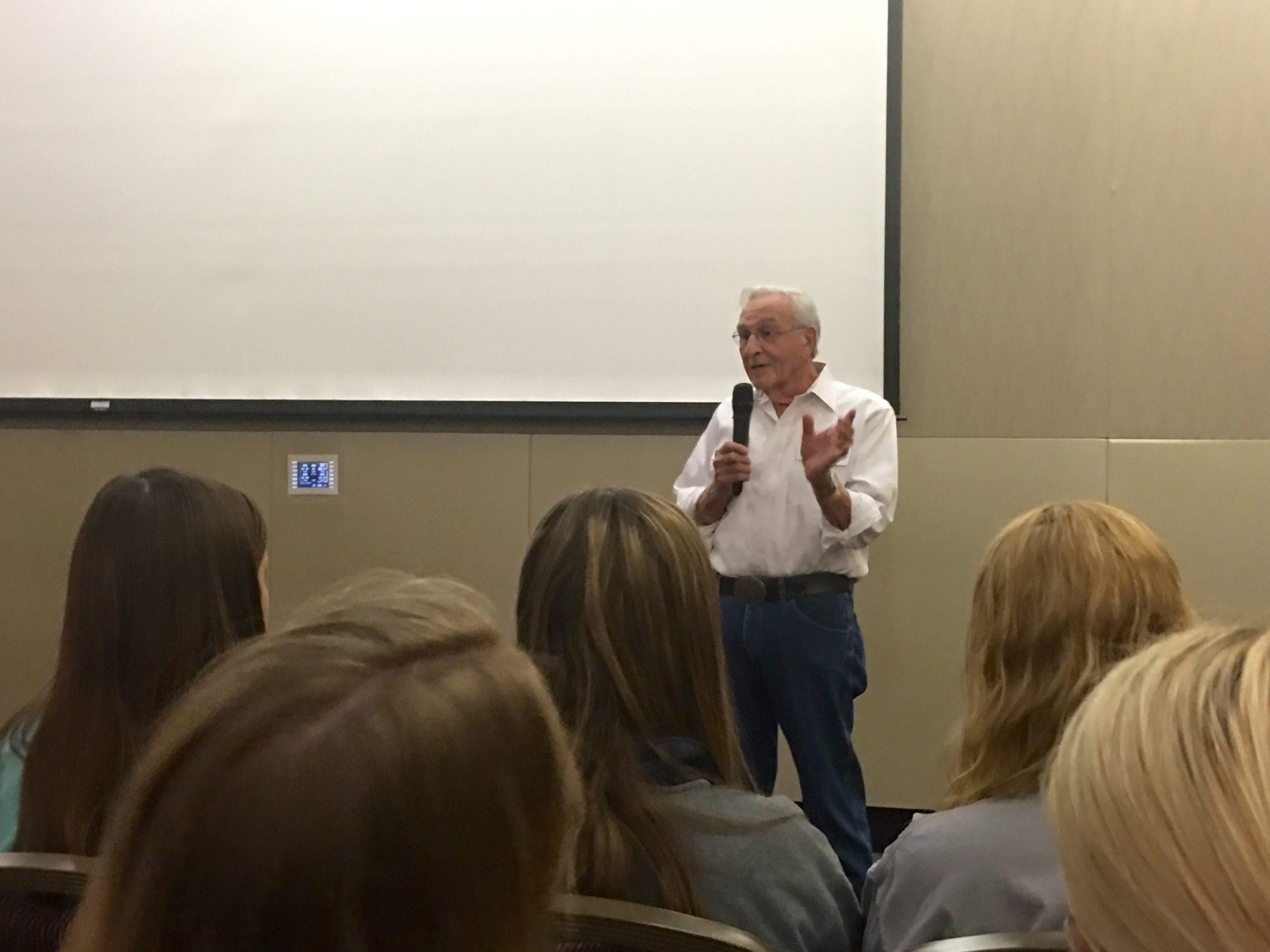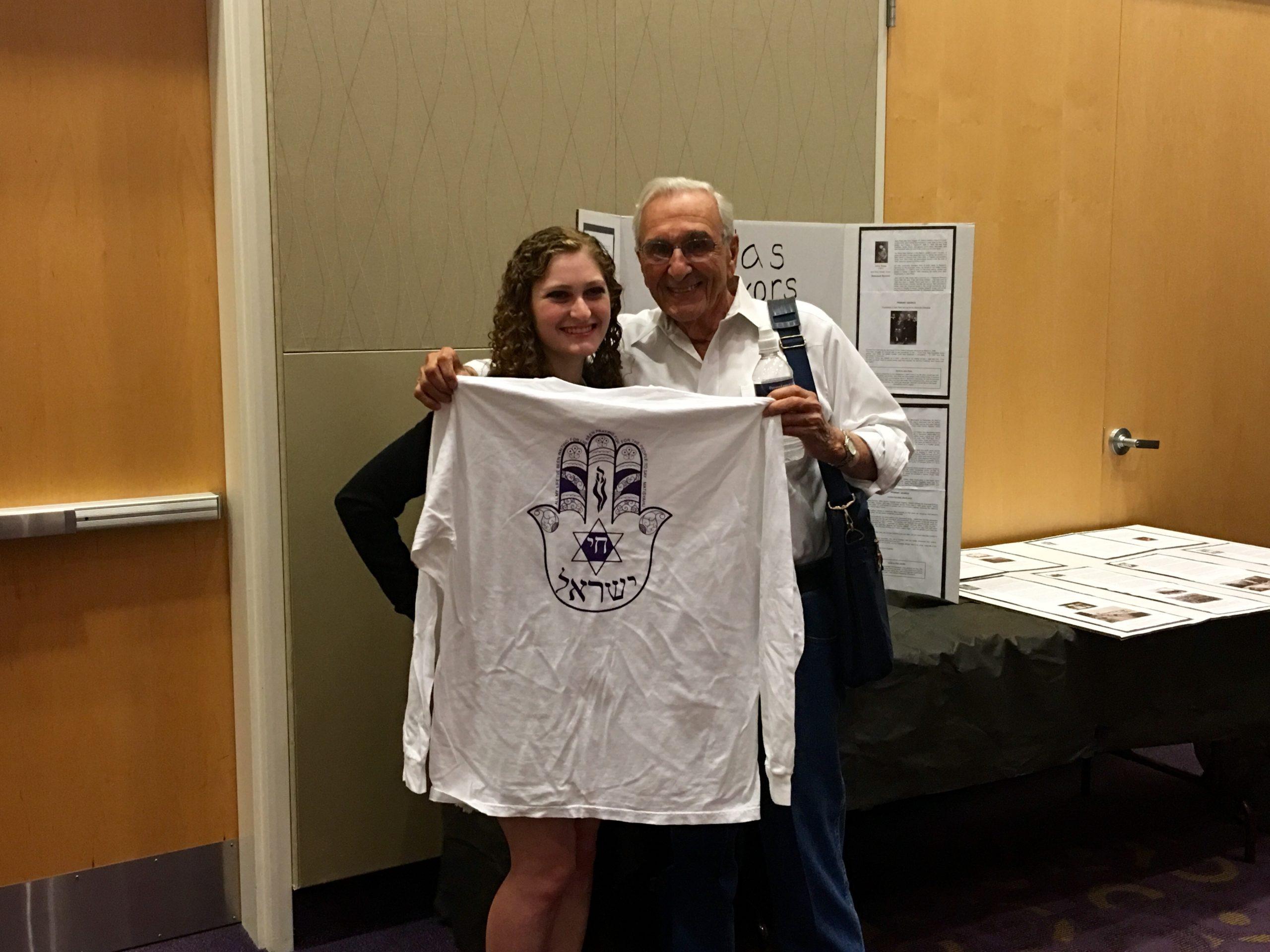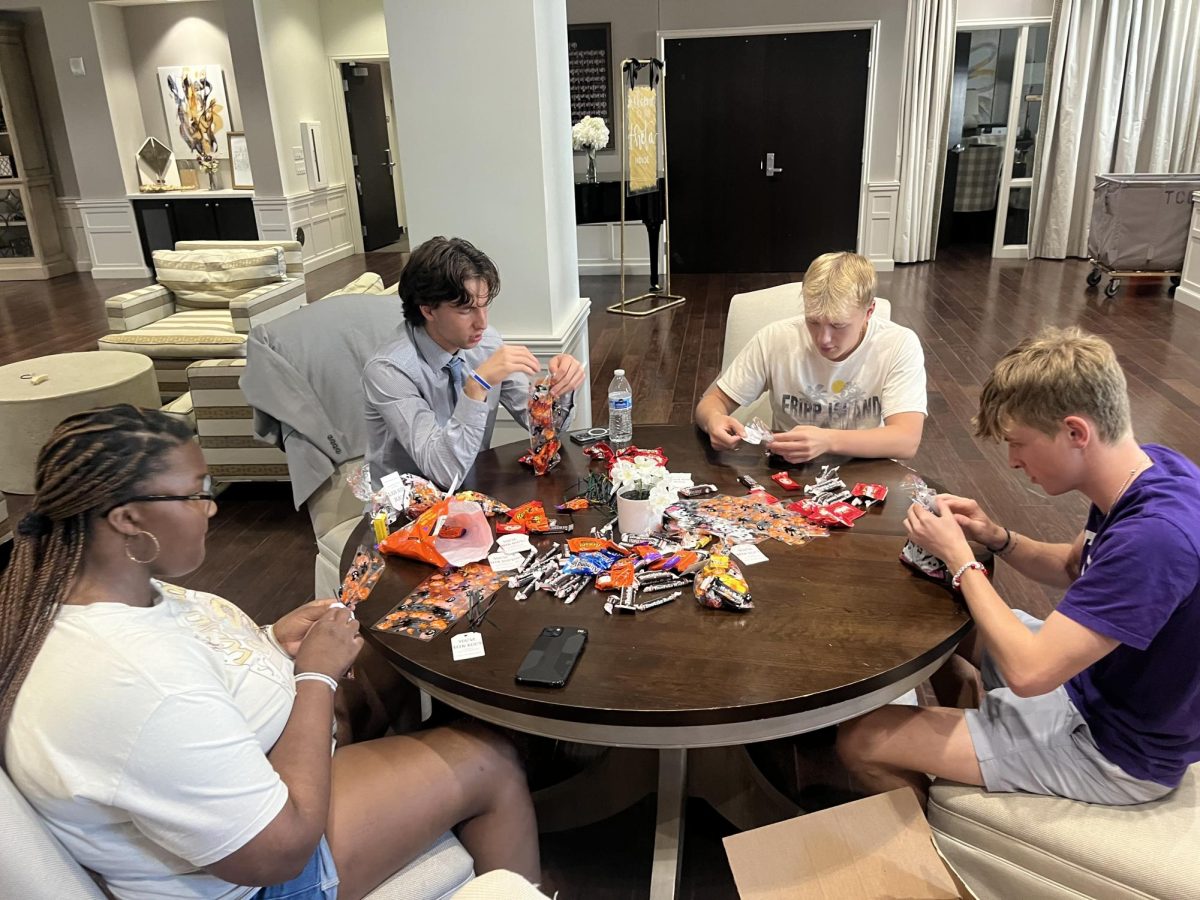For millennials, the Holocaust is a history lesson. For those who lived through it, it remains a painful memory.
Holocaust survivor Harry Kahn gave a different perspective to the term “survivor” to TCU students and faculty in a talk on Tuesday.
“The idea of looking at it in retrospect is very, very difficult,” said Kahn, who was an 11-year-old living in Germany when the Nazis burned over 250 synagogues and looted Jewish businesses on the “Night of Broken Glass.”
“Nowadays, I seldom speak about it because what we do is, we re-live it again,” Kahn said.
Kahn was this year’s speaker for TCU Hillel’s annual commemoration of the Holocaust.
“Re-living that particular period is not very pleasant,” he said.
Hillel, a Jewish organization on campus, also stages a Holocaust Museum to honor the lives of the 6 million Jews murdered by Nazis during World War II.
Kahn spoke about his experiences of growing up in the pre-WWII years of Nazi Germany before fleeing to the United States in 1939. Everything changed after the “Night of Broken Glass,” he said.
The following morning, he and his sister still went to school.
“We went to a Catholic School,” Kahn said. “About 10 in the morning, the priest came to me and said, ‘You better go home, we have a major problem; I have to expel all of the Jewish children in my school.'”
The priest was later taken to Dachau, one of the first Nazi concentration camps in Germany.
Kahn lived within walking distance of his synagogue, which he passed every day on his way to school. On his walk home the same day he was expelled, Kahn found the synagogue on fire.
Following the burning of the synagogue, horror engulfed his small town.
“That night, all the Jewish males in town, above the age of eight were rounded up,” Kahn said. “They were gathered near the church, where they were shaved and had the Star of David sewn onto their clothes.”
“All these people were transported – directly from there – to Dachau,” he said.
Kahn was the only boy excluded because he was given the task of cleaning up the remains of the synagogue the next day.
Kahn and his immediate family were able to escape Germany on a ship to the United States. Settling in Chicago, he was forced to watch the Holocaust unfold from the other side of the world.
“My father’s family – my grandfather, my father’s three brothers and their families and his two sisters and their families… none of them survived,” Kahn said. “They were picked up on November 29, 1931, and were all transported to Auschwitz-Birkenau. They were all killed.”
Kahn said the question he is constantly asked is, “How come more people didn’t leave Germany?”
“There was no place to go,” said Kahn.





